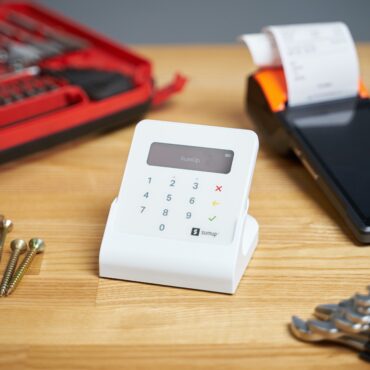
Wellness dollars are funds health insurance companies make available to offset the cost of employee wellness programs.
We all want happy, healthy, and productive employees. Our people are the lifeblood of our organizations, and our most valuable resources. And they’re our most expensive.
Healthcare costs remain one of the biggest line items, and here’s a shocking reality you may or may not be aware of; on average, 20% of your employees account for 80% of healthcare costs.
As a country, 75% of our healthcare costs go towards preventable diseases like obesity. What’s to be done? Enter wellness programs.
My goal today isn’t to provide the ins and outs of wellness programs, rather to help you pay for yours through something called wellness dollars.
I’ve been helping organizations take an integrated approach to employee wellness for 20+ years. While my area of expertise lies in financial wellness programs, I’ve worked closely with wellness providers to ensure the success of these programs.
Here’s what we’ll cover:
- The problem
- The cost of the problem
- Wellness programs
- Wellness dollars
- Your organization’s wellness program
- Additional resources
Let’s get started.
The problem
Americans are unhealthy. We’re plagued with poor lifestyle choices like obesity, smoking, and alcohol abuse. On top of those, many of us are suffering from mental health challenges as well as other environmental factors.
In terms of life expectancy, America isn’t even in the top 20 countries. And there’s a high economic cost.
Have you thought about how these problems are impacting your company?
The cost of the problem
According to Forbes, poor employee health costs employers more than $500 billion a year. This cost takes into account the total cost of poor health; absenteeism, presenteeism, amongst other things. Bottom line is that poor health is a big problem with a big price tag.
Have you ever tried to quantify poor health’s impact on your organization?
While there’s no magic wand which can solve this problem, wellness programs are a proactive step in the right direction.
Wellness programs
When you hear, “Wellness program” what comes to mind?
According to SHRM, a wellness program is:
“A program intended to improve and promote health and fitness that’s usually offered through the work place, although insurance plans can offer them directly to their enrollees. The program allows your employer or plan to offer you premium discounts, cash rewards, gym memberships, and other incentives to participate. Some examples of wellness programs include programs to help you stop smoking, diabetes management programs, weight loss programs, and preventative health screenings.”
Do you currently have a wellness program in place? What’s worked, and what have you struggled with?
A robust wellness program sounds like a good thing to offer to employees, but who pays for it?
Wellness dollars
Wellness dollars are funds insurance companies provide to their clients. The total amount is normally based on a percentage of premiums, and are to be used to pay for wellness programs.
Not every insurance company makes wellness dollars available, so you’ll need to ask if yours does. If they don’t currently, you may consider asking them to add them in at your next renewal. Other variables are the number of employees your organization has.
What can you use wellness dollars for? Common uses are gym memberships, fitness programs, health coaching, and chronic disease management programs. Many insurance companies have recognized the value of providing this type of incentive to companies and their employees, so they are flexible with how you can allocate your wellness dollars.
Do you have funds available?
You can ask your employee benefits professional, or your health insurance provider directly.
- Who do I speak with about my company’s wellness dollars?
- What kinds of programs can I spend the wellness dollars on?
- When can I access them, and do they expire?
- How many wellness dollars do I have? How does that number increase?
Your organization’s wellness program
You know your organization’s employee population better than anyone. What are your people struggling with? What kinds of programs would they benefit from?
Not sure, ask. A simple employee survey can uncover some needs that you may not be currently aware of.
Once you determine what your org’s wellness priorities are, and any wellness dollars that may be available, it’s time to find the resources for making your program a reality. I like to think about three tiers for creating a great wellness program.
DIY
The internet is awash with information and resources, so it’s possible to put a program together on your own. If diet and exercise are a priority, you can do simple things like encouraging people to bring lunch from home, and do walking meetings throughout the day.
Invest
There are also existing wellness programs which you can purchase. Peloton has a corporate wellness offering encouraging movement and exercise. Headspace has a program for mindfulness.
Partner
Finally, you can partner with an employee wellness provider who can tailor a program for your org and help you to manage it.
We’ve got two wonderful Certified Partners, FitPros and Wellable. If you’d like to get a feel for their philosophies, check out these podcast episodes I did with their CEOs.
Workplace Wellness with Lindsay Johnson
Workplace Wellness with Nick Patel
Additional resources
My experience has shown me that for a wellness program to work, there needs to be buy-in from top executives. Someone on the leadership team needs to believe this is a good and necessary thing for the organization.
From there, your wellness program must have a champion. There’s gotta be someone within the organization whose job it is to drive the program’s success.
Here are the wellness programs from the five largest healthcare providers in the United States.
If you like to learn about our financial wellness offering, check out Money Alignment Academy.
A workplace wellness program could be a great fit for your organization and your people. And if you have access to wellness dollars, it could be a win-win.
Stay up to date by getting our monthly updates.
Check out the LifeBlood podcast.
LifeBlood is supported by our audience. If you purchase through links on our site, we may earn an affiliate commission. Learn more.



